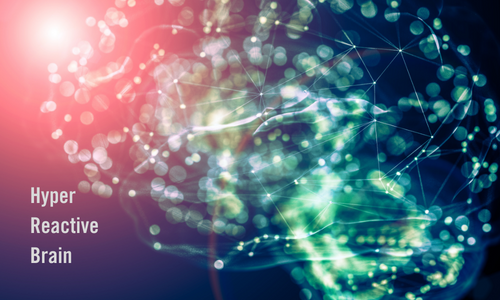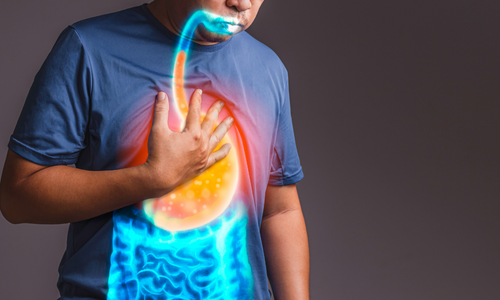Is your home a trigger to eat processed food? Reducing availability can help | Part 1 of 2

Issue No. 10 | Brought to you by the Addiction Reset Community – ARC
Unlocking the secrets of processed food addiction and guiding you to find freedom from food and weight obsession.

For hundreds of thousands of years, humans ate whatever was available. When a food came into season, humans would eat it all because they would not see it again for a year. As a result, humans are conditioned to eat all of whatever’s available.

Also, humans chose to eat the most calorie-dense food they could find. If they had a choice between salmon or grass, their brains urgently directed them to the salmon. This was also a crucial survival behavior. This was great for millions of years especially as food was scarce. Our ancestors were exceptionally good at this behavior which is why they survived periodic famines.
However, in today’s obesogenic world, the food industry has hijacked these mechanisms for their own profit. Through repeated exposure to cues and the formulation of processed foods mixed with addictive ingredients, the food industry has made some brains hyper-reactive to calorie-dense foods.

This means that a hyper-reactive brain explodes with addictive neurotransmitters such as dopamine, opiates, serotonin, endorphins, and endocannabinoids when processed foods are available. This explosion of neurotransmitters is so vast, that it drains the energy from the rest of the brain. Under these circumstances, the person cannot make a decision, nor remember why overeating is a bad idea, nor exercise restraint. The centers in the brain that create these thoughts are not working when processed foods are available and the foods provoke intense cravings. The longer the hyper-reactive person is exposed to availability, the greater the craving.
Even for people who don’t have reactive brains, availability of processed foods in a household can lead to a long list of diet-related diseases such as overweight, depression, anxiety, irritability, diabetes, stroke, heart disease, inflammation, joint pain, ADD, dementia, Alzheimer’s, and skin eruptions. All members of your household, even children, are exposed to these diseases when processed foods are available in the home.

In Part 2 of 2 in the next issue of this newsletter, we will share some of the Do’s and Don’ts that can help households to reduce the availability of processed foods and protect families from these diseases.

Within the Addiction Reset Community (ARC) our members and their journeys are important to us. We find their stories inspiring and hopeful for everybody in health recovery.
“When I first came into recovery, I kept wanting to believe that I could control the food. Geez! I'd been studying the subject via diet books for 40 years. Long enough for my ego to know it all. Denial was the name of the game for this food addict. Yet I would try over and over again to have just one serving and kept going back for more.
Somewhere along the line, I was finally able to accept that I get triggered into wanting more. The bio-chemical reaction kicks off in my brain and I'm truly powerless over that reaction once I take the first bite of those processed foods or my personal food triggers.
Acceptance of the reality of my food addiction was the key for me. If a food triggers that reaction in my brain, then that food is not in my best interest. Support from the ARC helps me to remain abstinent from the foods that cause this reaction.”

Many people reach out to Joan asking for advice and assistance on how they can begin their recovery journey.
Dear Joan
Is it really necessary to join a support group to recover from processed food addiction? Why can’t I do this on my own?
Joan responds:
The brain has a powerful conformance drive. If you do this by yourself, you're still mostly around people who are eating processed foods. So your institutional conformance drive leads you to copy eating processed foods. If you're in a recovery group, your brain will naturally copy the behaviors of fellow members, especially eating clean and staying calm in all circumstances.
In the early stages of recovery, the reward pathways are still very sensitive to food messages. It's easy to keep lapsing while those brain cells are so sensitive. By immersing those sensitive brain cells in compassion, encouragement, and calmness, within a group environment, they can regain their ability to stay calm when provoked by advertising or availability.
DISCLAIMER:
Dr Joan Ifland (PhD) is a global expert on the subject of processed food addiction and is not a medical doctor. Information and response shared in this Newsletter are not intended for, and should not be construed as medical advice.

Do you have a question? Reach out to us with your questions about food addiction and recovery at gethelp@foodaddictionreset.com
Are you showing signs of Processed Food Addiction? Take this self-quiz to find out now!
Recent copies of Dr Joan Ifland's Blog:
Issue 01 | Issue 02 | Issue 03 | Issue 04 | Issue 05 | Issue 06 | Issue 07 | Issue 08 | Issue 09

